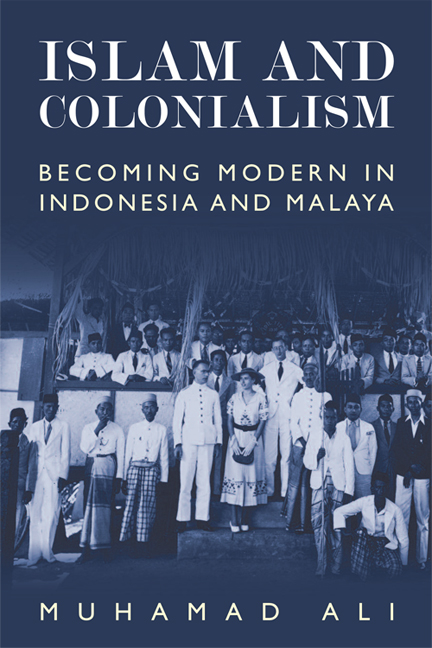Book contents
- Frontmatter
- Contents
- Glossary
- Acknowledgements
- List of Abbreviations
- Transcriptions and Orthography
- Map
- Introduction
- Part I Making Islam Modern
- Part II Modernising Politics and Government
- III Building Siyasah and Reforming Sultanate
- IV Controlling Politics and Bureaucratising Religion
- Part III Modernising Law
- Part IV Modernising Education
- Conclusion
- Bibliography
- Index
IV - Controlling Politics and Bureaucratising Religion
from Part II - Modernising Politics and Government
Published online by Cambridge University Press: 05 September 2016
- Frontmatter
- Contents
- Glossary
- Acknowledgements
- List of Abbreviations
- Transcriptions and Orthography
- Map
- Introduction
- Part I Making Islam Modern
- Part II Modernising Politics and Government
- III Building Siyasah and Reforming Sultanate
- IV Controlling Politics and Bureaucratising Religion
- Part III Modernising Law
- Part IV Modernising Education
- Conclusion
- Bibliography
- Index
Summary
Today, there are petty princes in East India under Dutch sovereignty who decorate themselves with the title of khalif [Caliph], without suspecting that they are thereby guilty of a sort of arrogant blasphemy.
(Snouck 1916: 111)Malays saw the desirability of British interference with their religion and custom.
(Winstedt 1948: 102)European colonialism was a force for political control and secularisation in the East Indies and Malaya. European colonial governments had to coexist with the political reality of Muslim colonies, however, which was a more complex situation than could be solved by either integrating or separating the religion of Islam from the colonial state. They sought to employ modern bureaucratic distinction between private and public realms in this context. By distinguishing religious and private affairs from political and public matters, they influenced the transformation of politics and administration of religion in Indonesia and Malaya.
In the East Indies, Islamic reform movements and colonial modernisation projects often collided in the domain of politics and government. The Dutch had to respond dynamically to the different forms of Muslim political activism discussed earlier. In a lecture on Muslim views of the church– state relationship, Snouck outlined the political history of Islam. Snouck argued that whenever Muslim lands were conquered by kafir, Muslims would migrate to a Muslim country. Once relocation became impractical, however, Muslim legal scholars conceded to necessity and began permitting and even recommending that Muslims resign themselves to being ruled by kafir. Snouck told his colonial audience that, following the view of Al-Ghazali, while submission to non-Muslims was always to be regarded as temporary and abnormal, Muslims would not resist a foreign ruler just because the ruler was a kafir, so long as their religious needs and their sense of justice could be guaranteed (Snouck 1916: 114). Dutch colonial administrative attempts to govern their predominantly Muslim subjects fell in line generally with Snouck's suggestions. They included religious freedom, freedom of the press and freedom of association in their political charters. They allowed religious and cultural practices to continue and even flourish, while keeping political activities under control. At the same time, although the Dutch interfered in the Islamic political activities they, too, helped facilitate the management of certain Islamic matters in the East Indies, particularly through the work of native officials or regents (D. zelf-bestuurder).
- Type
- Chapter
- Information
- Islam and ColonialismBecoming Modern in Indonesia and Malaya, pp. 137 - 162Publisher: Edinburgh University PressPrint publication year: 2015

